A research team has uncovered a molecular “switch” that precisely regulates NMDA receptors, key players in brain communication, by blocking excitatory synapse overactivity.
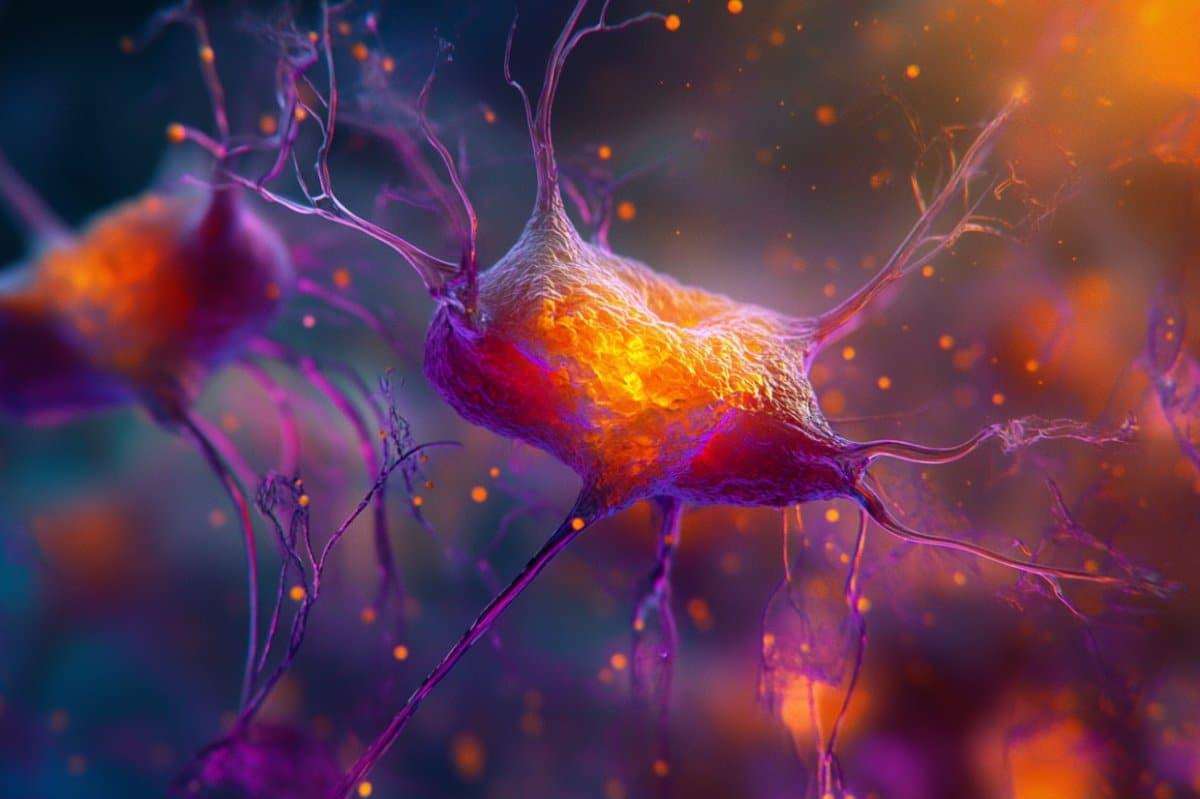

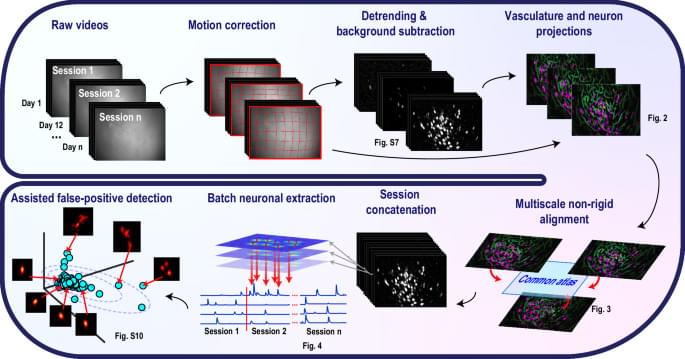
Neural data analysis algorithms capable of tracking neuronal signals from one-photon functional imaging data longitudinally and reliably are still lacking. Here authors developed CaliAli, a tool for extracting calcium signals across multiple days. Validated with optogenetic tagging, dual-color imaging, and place cell data, CaliAli demonstrated stable neuron tracking for up to 99 days.
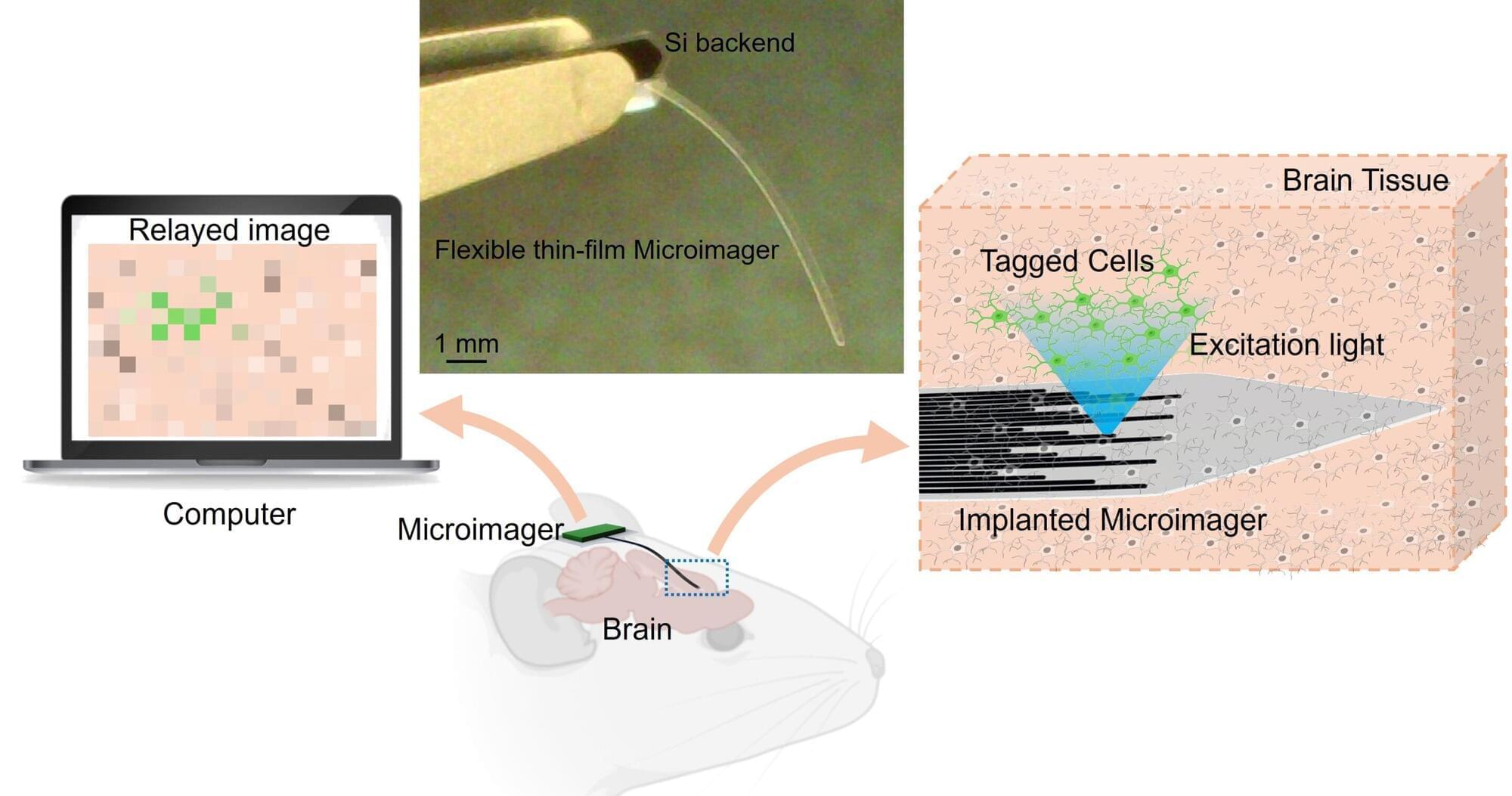
Researchers have developed an extremely thin, flexible imager that could be useful for noninvasively acquiring images from inside the body. The new technology could one day enable early and precise disease detection, providing critical insights to guide timely and effective treatment.
“As opposed to existing prohibitively large endoscopes made of cameras and optical lenses or bulky fiber optic bundles, our microimager is very compact,” said research team leader Maysam Chamanzar from Carnegie Mellon University. “Much thinner than a typical eyelash, our device is ideal for reaching deep regions of the body without causing significant damage to the tissue.”
In the journal Biomedical Optics Express, the researchers showed that the microimager, which is only 7 microns thick—a tenth of an eyelash diameter—and about 10 mm long, can be used in a mouse brain for structural and functional imaging of brain activity. The width of the thin film imager can be customized based on the desired field of view and resolution.
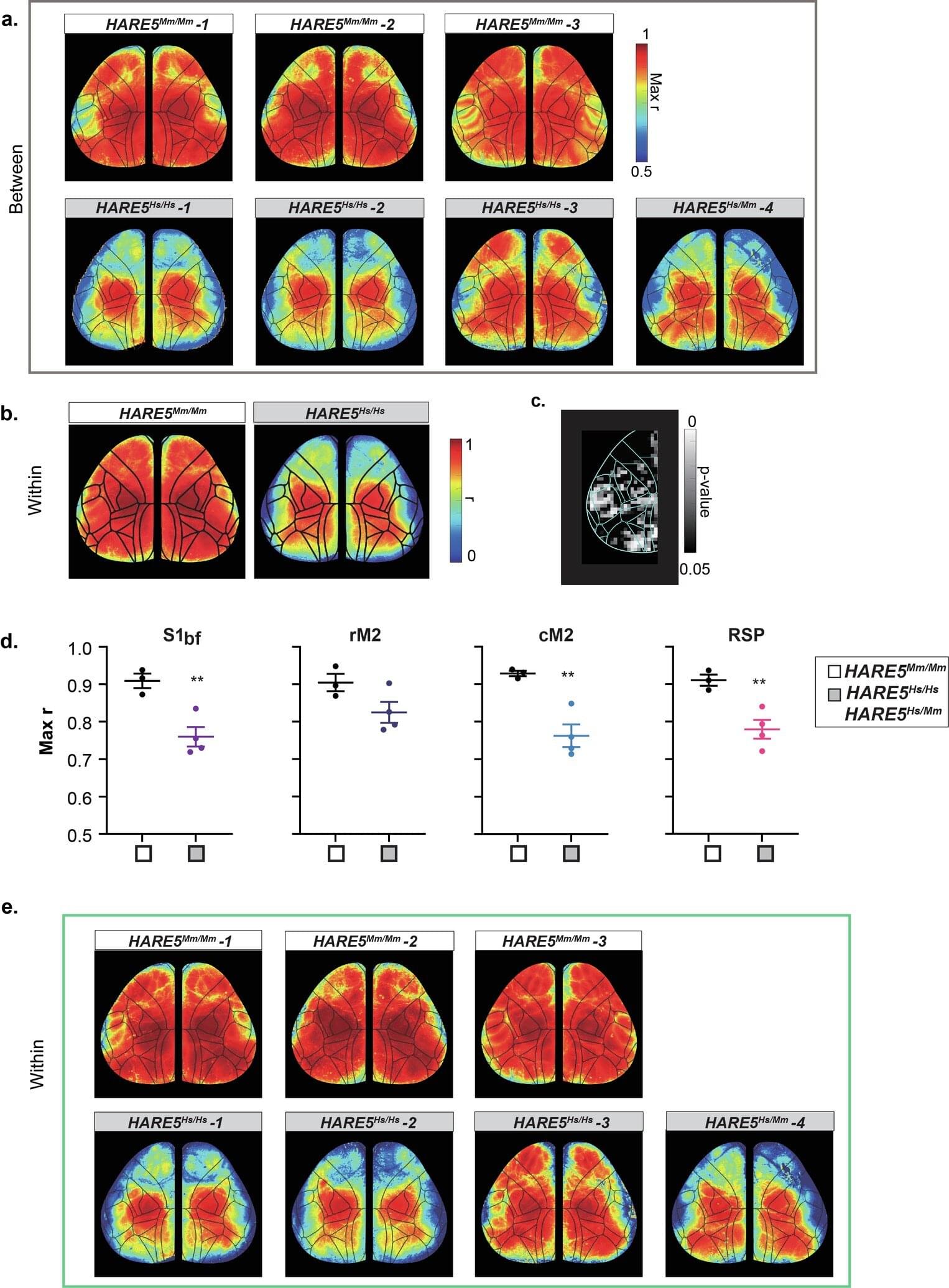
Duke University Medical Center-led research has identified a human-specific DNA enhancer that regulates neural progenitor proliferation and cortical size. Small genetic changes in HARE5 amplify a key developmental pathway, resulting in increased cortical size and neuron number in experimental models. Findings have implications for understanding the genetic mechanisms underlying neurodevelopmental disorders.
Humans possess a significantly larger and more complex cerebral cortex compared to other species, contributing to advanced cognitive functions. Comparative genomics research has identified Human Accelerated Regions (HARs), segments of non-coding DNA with human-specific genetic changes. Many HARs are located near genes associated with brain development and neural differentiation.
Because thousands of HARs have been identified and linked to brain-related genes, the next critical step is to investigate how these regulatory elements actively shape human brain features.
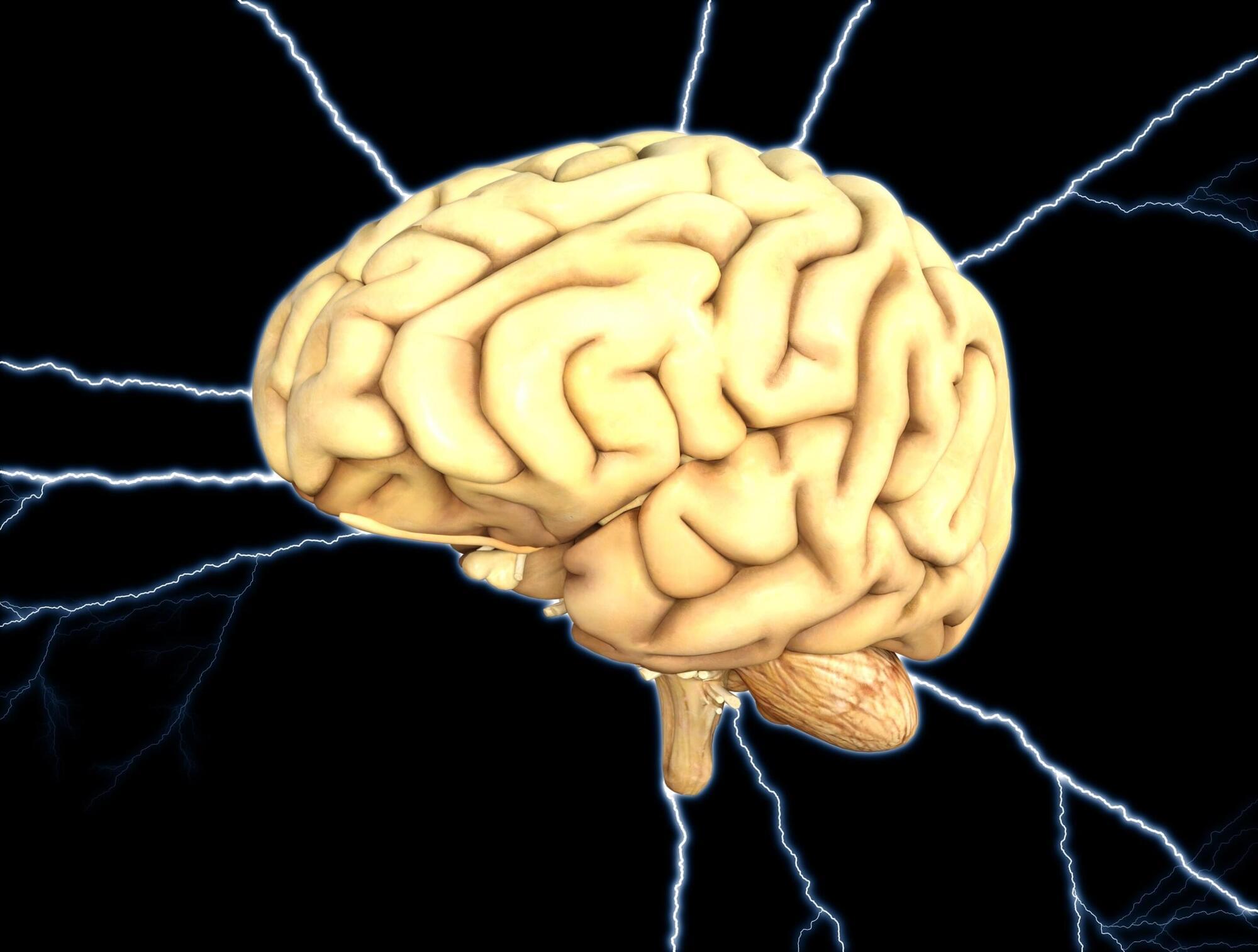
The study revealed genes and cellular pathways that haven’t been linked to Alzheimer’s before, including one involved in DNA repair. Identifying new drug targets is critical because many of the Alzheimer’s drugs that have been developed to this point haven’t been as successful as hoped.
Working with researchers at Harvard Medical School, the team used data from humans and fruit flies to identify cellular pathways linked to neurodegeneration. This allowed them to identify additional pathways that may be contributing to the development of Alzheimer’s.
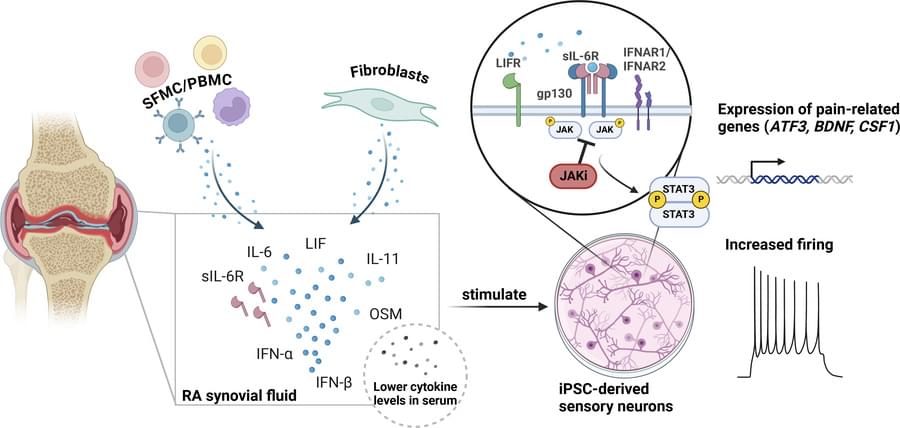
Anti-inflammatory drug JAK inhibitors (JAKi) reduces pain in rheumatoid arthritis (RA) but the mechanism is not clear.
To figure out if JAKi directly acted on human sensory neurons, the authors found they expressed JAK1 and STAT3.
The show that RA synovial fluid addition to human induced pluripotent stem cell (iPSC)-derived sensory neurons led to phosphorylation of STAT3 (pSTAT3), which was completely blocked by the JAKi tofacitinib.
The researchers also discovered that RA synovial fluid was enriched for the STAT3 signalling cytokines IL-6, IL-11, LIF, IFN-alpha and IFN-beta, and their requisite receptors present in peripheral nerves post-mortem.
They observed upregulation of pain-relevant genes with STAT3-binding sites, an effect which was blocked by tofacitinib in cytokine treated iPSCs. LIF also induced neuronal sensitisation, highlighting this molecule as a putative pain mediator.
Tofacitinib reduced the firing rate of sensory neurons stimulated with RA synovial fluid indicating role for JAKi in controlling analgesic properties. https://sciencemission.com/RA-synovial-fluid-induces-JAK-dep…tivation-o

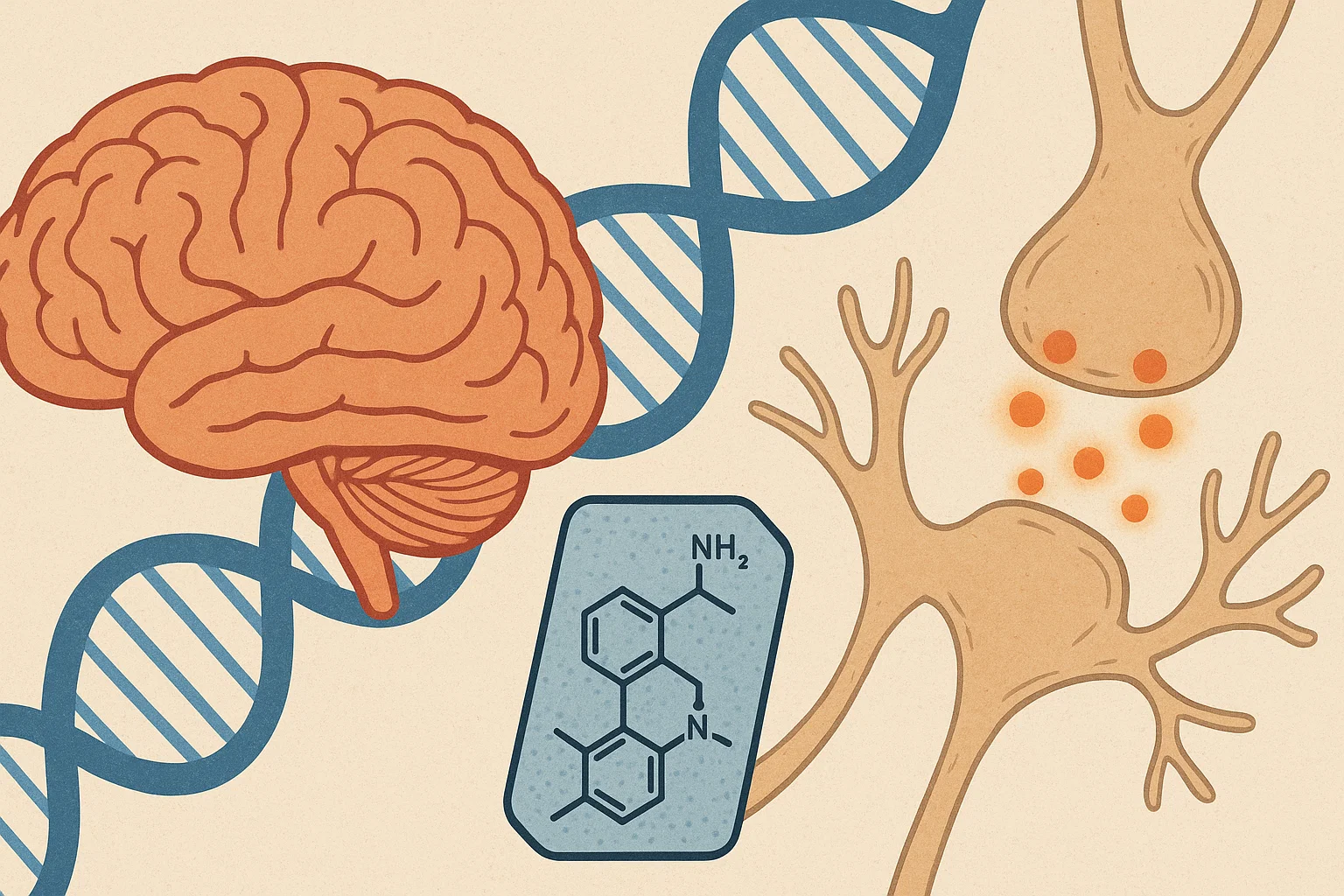

Researchers at UC Davis have fiddled with LSD at the atomic level and may have unlocked a potential game-changing treatment for schizophrenia. The new compound, known as JRT, might be able to repair the brain without making you trip balls.
The scientists, who posted their findings in the scientific journal Proceedings of the National Academy of Sciences, were toying with LSD atoms when they decided to, in their own words, do a “tire rotation.” This meant swapping the position of two atoms in LSD’s molecular structure.
That tiny change turned it from a powerful hallucinogen into something that can regrow brain cells in mice and mend neural pathways without launching your consciousness into the cosmos.
Is your mind more than just your brain? Does the soul actually exist? These questions have been pondered for millennia. What does the latest scientific research suggest? On this episode of the ID The Future podcast, renowned neurosurgeon Dr. Michael Egnor begins a conversation with host @Andrew_McDiarmid about his new book The Immortal Mind: A Neurosurgeon’s Case for the Existence of the Soul. Egnor makes a powerful case that our capacity for thought, reason, and free will points to something beyond mere brain function.
After defining terms, Egnor begins exploring the compelling evidence he has gathered across four decades of practice in neurosurgery. He recounts the remarkable results of split-brain surgery, where patients whose brain hemispheres are functionally disconnected still feel like one person and can process information presented separately to each hemisphere. This implies a part of their mind is not solely located in their brain. You’ll also hear about conjoined twins who share brain parts but maintain distinct intellects and free will, highlighting which aspects of the soul are not brain-based and cannot be shared.
Along the way, Dr. Egnor also boldly challenges the Darwinian view of the mind’s evolution, arguing that abstract thought and free will are immaterial and could not have arisen through natural selection. Learn why Dr. Egnor believes nature is not a closed system and that science alone cannot fully interpret its own findings. Drawing on ancient philosophers like Aristotle and Thomas Aquinas, he presents arguments for a cause outside of nature.
This is Part 1 of a two-part interview. In Part 2, we’ll explore Dr. Egnor’s personal journey from atheism to theism and more evidence for the immortality of the mind and the existence of the soul.
Enjoy more ID The Future here:
#neuroscience #intelligentdesign #mind #brain.